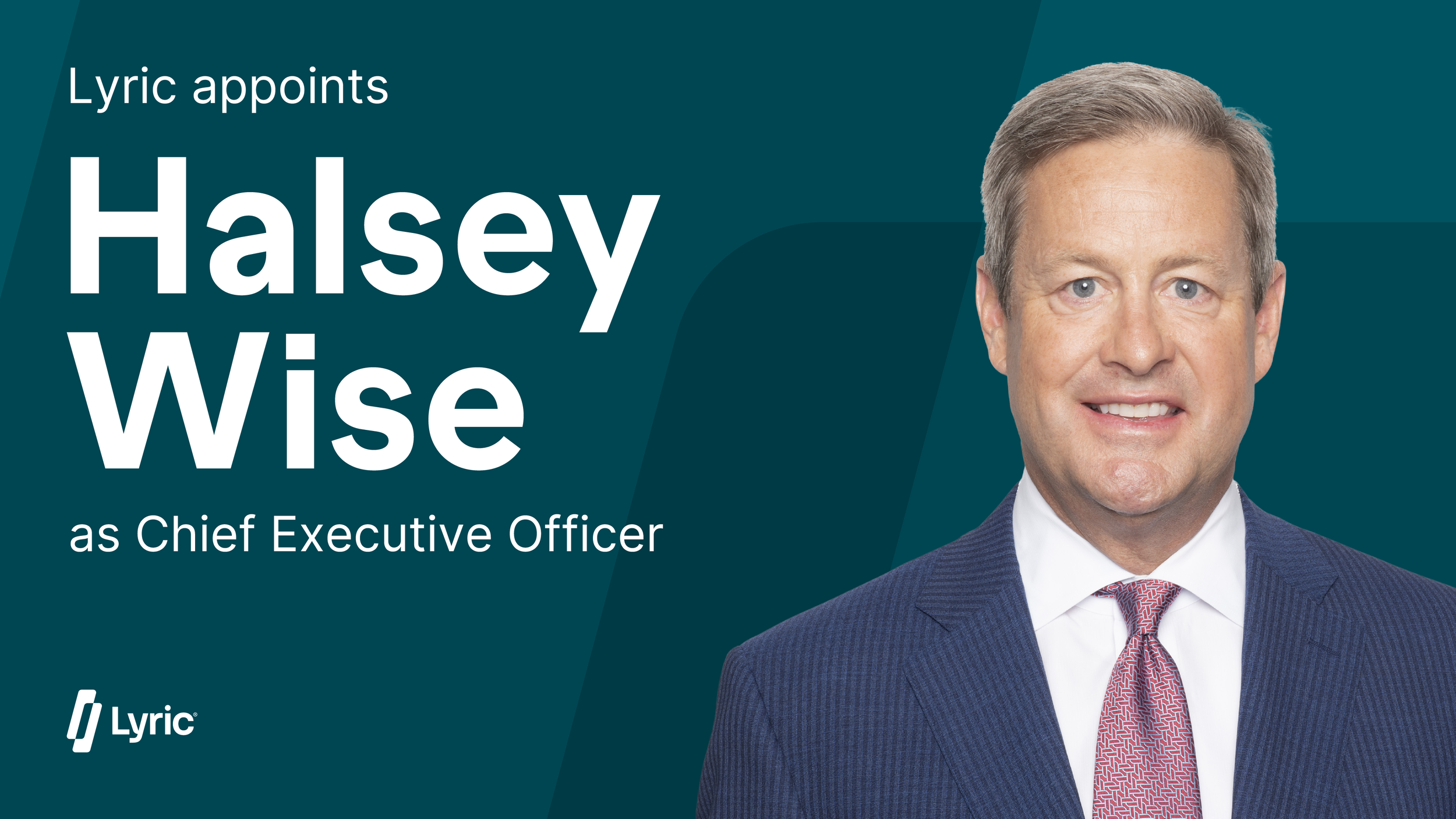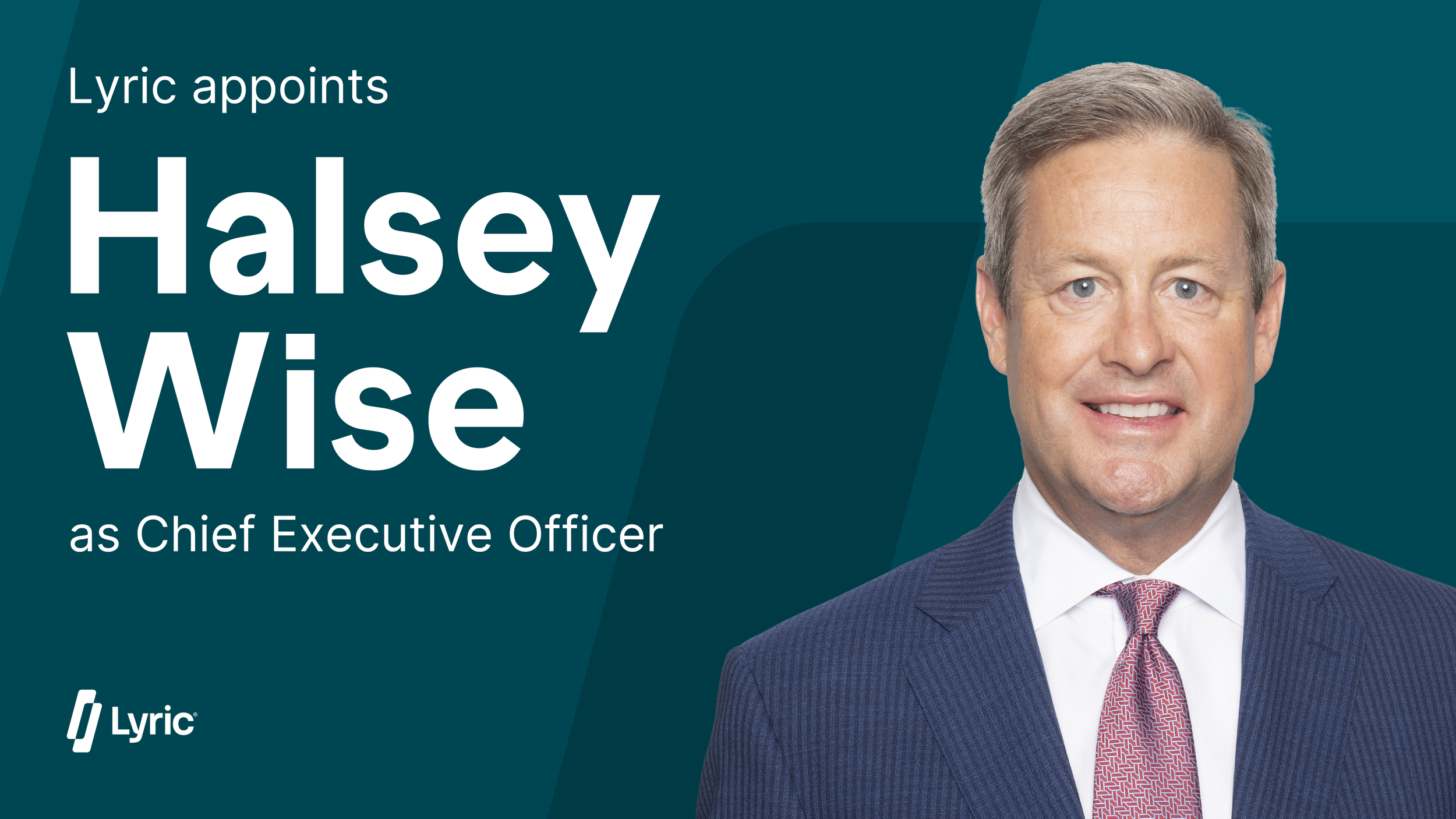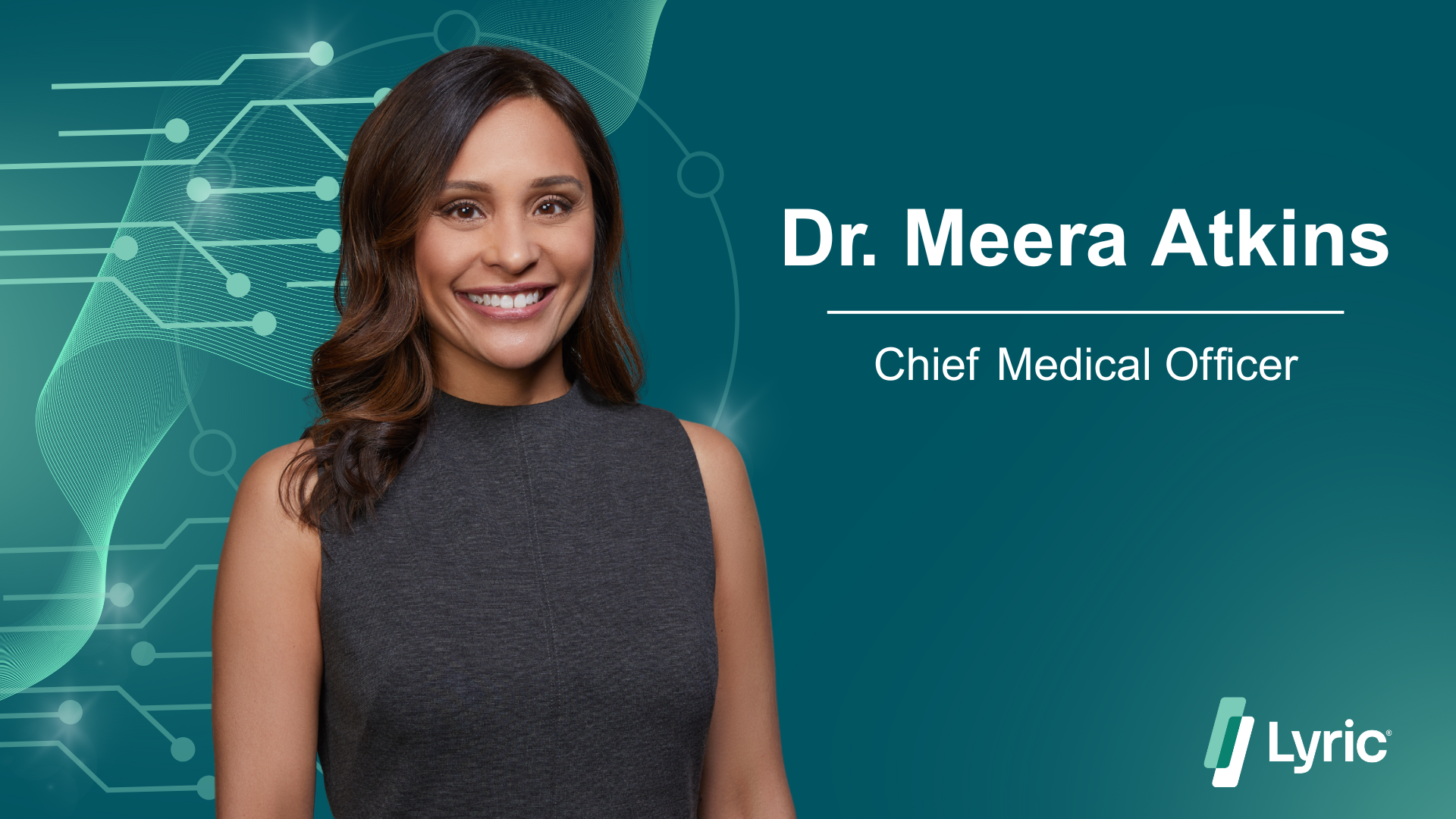Lyric in the News
Join the Lyric mailing list for updates on events, webinars, podcasts, product releases, and more. Stay inspired with the latest from healthcare leaders, delivered straight to your inbox.
Featured Press
Lyric Appoints Halsey Wise as Chief Executive Officer
Lyric appoints Halsey Wise as Chief Executive Officer, marking a new chapter in AI-driven payment integrity innovation for health plans and the healthcare ecosystem.
Lyric Appoints Halsey Wise as Chief Executive Officer
Lyric, a leader in payment integrity AI and claims analytics for health plans, today announced the appointment of Halsey Wise as Chief Executive Officer, effective immediately. Wise, a member of Lyric’s Board of Directors since 2022, succeeds Raj Ronanki, who has transitioned into an advisory role to support the company’s continued success.
Lyric Launches Emergency Department Program to Improve Facility E/M Coding Accuracy
Lyric launched its new Emergency Department Program to help health plans control rising ED facility costs through accurate, consistent, and transparent level determinations.
Lyric Celebrates Opening of Lyric India in Hyderabad
Lyric India launches as a new AI innovation hub in Hyderabad, accelerating breakthroughs in healthcare payment accuracy. The growing team will build advanced AI to help health plans detect and prevent claim errors in real time.
Lyric Earns 2025 Candidate Experience Award for Excellence in People-First Hiring
Lyric, a global AI-first healthcare technology leader, has been recognized as a 2025 Candidate Experience (CandE) Award winner, the gold standard in excellence for candidate experience. The award celebrates organizations that demonstrate industry-leading transparency, communication, and fairness throughout every stage of the hiring journey.
Meera Atkins, M.D., MBA, FACOG Joins Lyric as First-Ever Chief Medical Officer
A nationally recognized healthcare executive, Dr. Meera Atkins brings over two decades of experience driving clinical strategy, innovation, and transformative change across health plans, provider networks, and emerging technology organizations. She joins Lyric to lead its clinical content vision and to ensure the company’s AI-driven solutions meet the highest standards of medical accuracy, utility, and impact.
Lyric Unveils Game-Changing Innovation Roadmap: Boldly Advancing the Future of Payment Accuracy
Lyric has launched a bold innovation strategy designed to transform the future of payment integrity. Anchored by its unified platform, Lyric42, the company is delivering scalable, AI-driven solutions across the entire payment lifecycle—from smarter, logic-first pre-pay to high-velocity audit and recovery. New tools like Studio42, Lyric Replay, and Enhanced Coordination of Benefits are setting a new standard for accuracy, efficiency, and insight.
Lyric Acquires ClaimShark to Expand Platform Value and Power Next-Gen AI Applications
Lyric, a leader in healthcare payment accuracy and integrity solutions, proudly announced its acquisition of ClaimShark, an innovative payment integrity technology platform focused on enhancing integration, transparency, and precision for health plans.
Lyric Earns Best in KLAS for Pre-Payment Accuracy and Integrity Solutions
Lyric proudly announces its recognition as Best in KLAS 2025 for Pre-Payment Accuracy & Integrity Solutions. This award highlights Lyric’s innovative technology platform and strategic partnerships, delivering unmatched value and customer trust in the healthcare industry. Learn more about our journey to excellence.
Lyric to Add Coordination of Benefits Capabilities to Payment Accuracy Solutions
Lyric announced it would offer coordination of benefits solutions as part of its leading payment integrity offering. The first component of Lyric’s overall COB offering is available as a result of a strategic partnership with Strout (formerly the Strout Company), a market leader in Medicare COB.
Future-Ready: 10 Best Practices to Improve Prepay Claims Editing
In the fast-evolving and intricate landscape of payment integrity, the value of prepay editing is paramount. As powerful AI and advanced analytics are being applied earlier in the claim adjudication process, the importance of next-generation claim editing capabilities will separate health plan leaders from laggards.
Lyric Debuts New AI-Driven Platform Aimed at Streamlining Payment Accuracy and Cost-of-Care
Lyric to offer its newest innovation, 42, enabling customers to unlock greater value, reduce administrative costs, and simplify technology deployment related to payment accuracy and healthcare affordability.
Lyric and Concert Expand Partnership to Deliver Laboratory Payment Accuracy Solution
The Diagnostics Module—available through Lyric’s expanded partnership with Concert—will seamlessly deliver Concert’s integrated policy and payment accuracy capabilities for a growing scope of laboratory testing.
Lyric to Offer Innovative, Real-time Medicare Coordination of Benefits Capabilities as part of its Pre-Pay Payment Accuracy Solutions
Lyric COB offering made possible through strategic partnership with Strout and customized connections built by DatumSure
Tawfiq Bajjali Of Lyric: How AI Is Disrupting Our Industry, and What We Can Do About It
Artificial Intelligence is no longer the future; it is the present. It’s reshaping landscapes, altering industries, and transforming the way we live and work. With its rapid advancement, AI is causing disruption — for better or worse — in every field imaginable.
Smaller AI Models Challenge GPT-4, Boost Business Accessibility
Inflection’s recent Pi chatbot upgrade showcases the trend of developing smaller, more cost-effective artificial intelligence (AI) models that make AI more accessible for businesses.
The early returns on gen AI for software development
Leading organizations highlight key takeaways from initial implementations of generative AI across the app-dev lifecycle, including benefits, limitations, team impacts, and lessons learned.
For future AI, the prompt is you
Here’s how to navigate the future of healthcare with AI by using strategic principles that align the workforce and more.
Lyric to Offer Real-time Medicare Coordination of Benefits in Pre-Pay Payment Accuracy Solutions
Lyric COB offering made possible through strategic partnership with Strout and customized connections built by DatumSure
Watch for ‘Hallucinations’ When Using AI for Healthcare
Artificial intelligence (AI) developers caution that there are limitations to the technology. Healthcare organizations must consider them when seeking the benefits AI offers.
How to use AI to transform Healthcare | Akshay Sharma | Stories in AI
In this episode, Ganesh Padmanabhan chats with Akshay Sharma, Chief AI Officer at Lyric. In this episode, we tackle the topics of AI healthcare solutions and just how the landscape is set to be disrupted by AI.





















